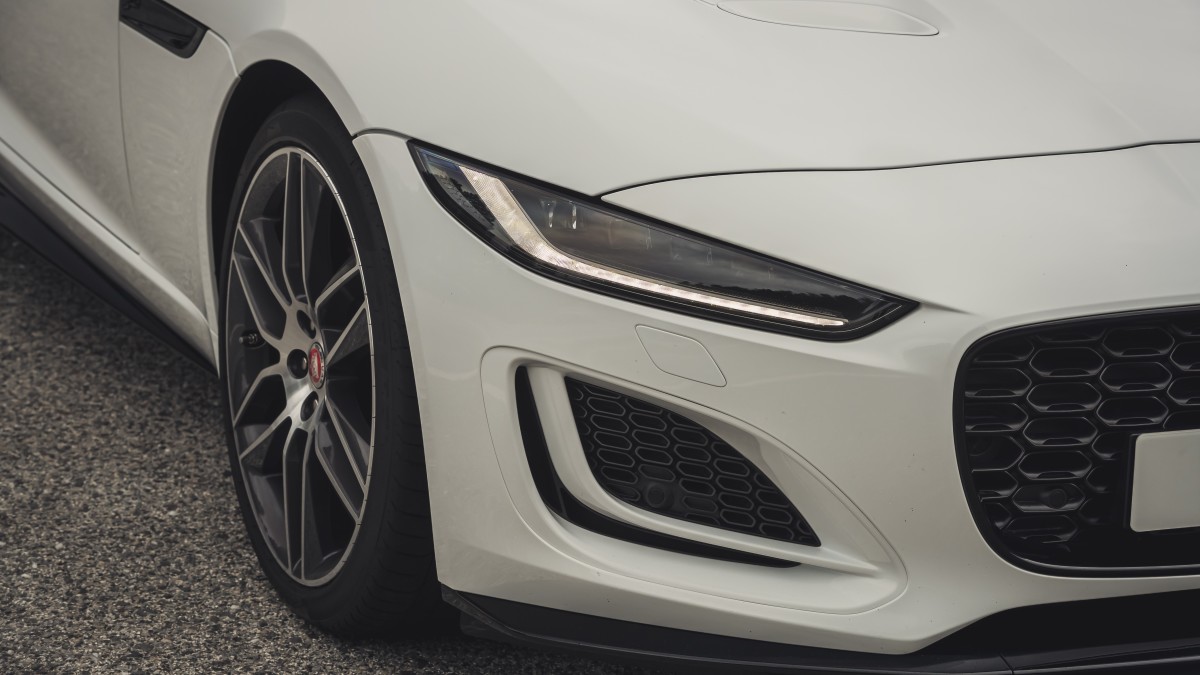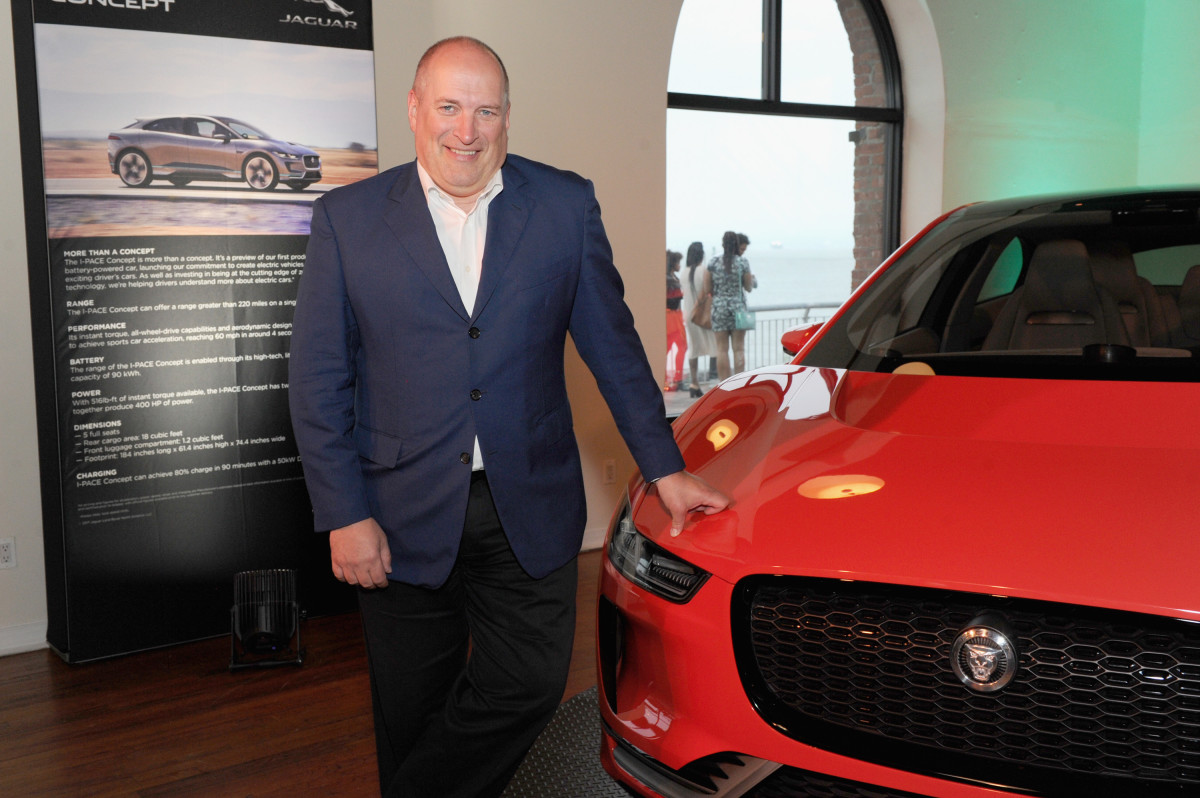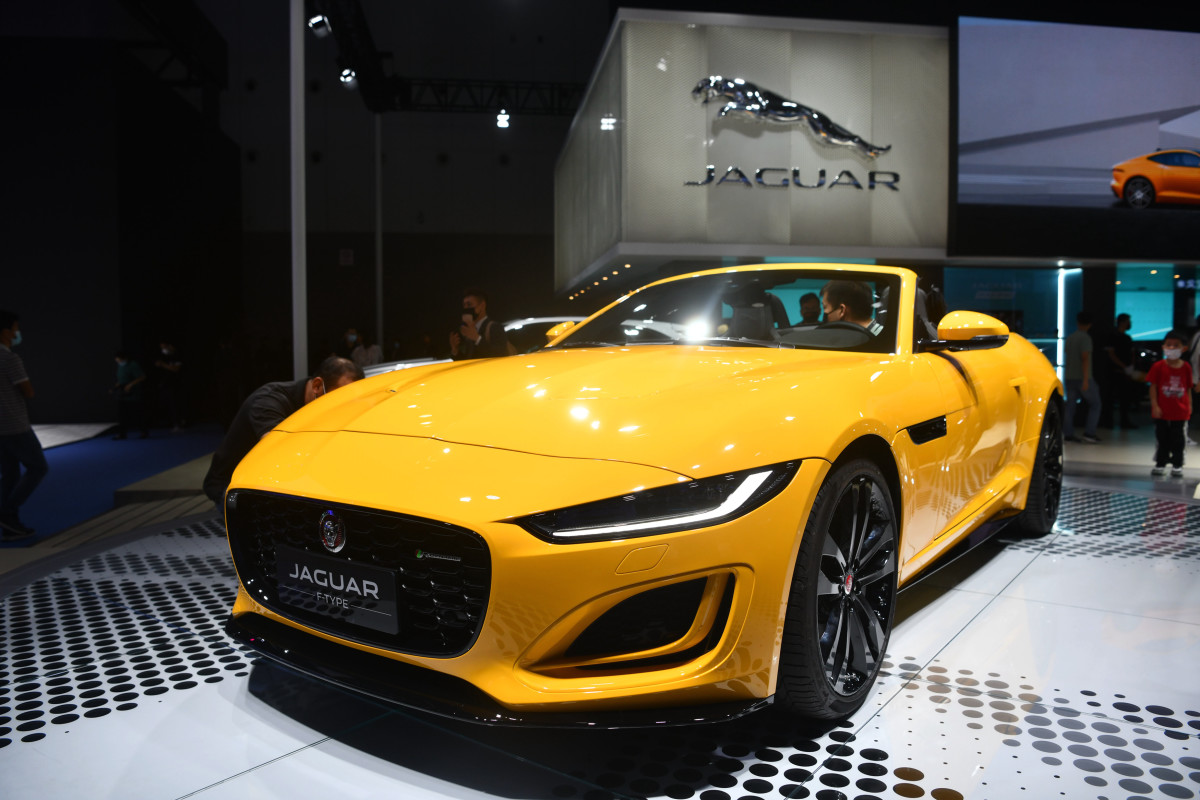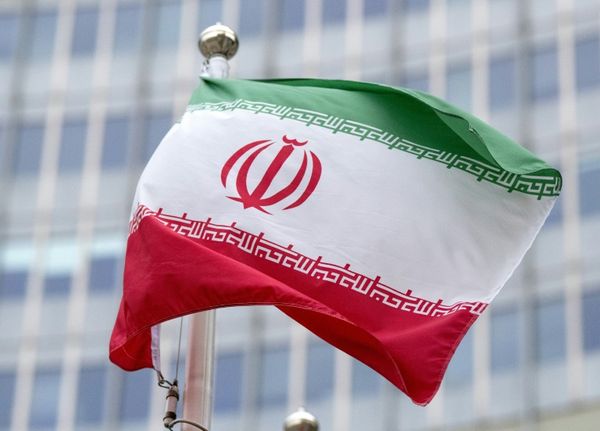
While other mainstream auto manufacturers are slowly drip feeding battery electric vehicles into their lineups, Jaguar (TTM) is taking a vastly different approach in its electric transition.
In 2021, the British marque laid out plans to be an electric-only automaker by 2025, but across its U.S. lineup – the XF sedan, the E-Pace and F-Pace crossover SUVs, F-Type sports cars and the electric I-Pace crossover, four out of the five models on sale are still gas guzzlers.
Related: Goldman Sachs’ analysts weigh in on Tesla, EV election risk

In an interview with Road and Track magazine, Jaguar Land Rover North America CEO Joe Eberhardt revealed that a the company will stop making most of its lineup in order for the brand to have a 'clean slate', with its new all-electric lineup.
“The majority of our products cease production in June, but they will be on sale for a much longer time,” Eberhardt said. “we will have a production schedule that enables us to have a continuous supply of vehicles until the new cars come."
"We’re trying to time it so we have enough volume to take us through to the launch of the new product and have a clean handover," he added. "Whether it will be as perfectly planned as that, we’ll see – maybe we’ll sell out more quickly, or maybe it will take a little longer to sell through the current inventory. But the plan is to sunset the current product portfolio and then launch the new ones.”

As the Jags transition to an all-electric lineup, the brand recognizes that it'll sell fewer cars than it would have sold in the past. Volume for the brand overall has declined since 2017, moving 179,000 cars worldwide, with 40,000 vehicles making it stateside. In the year ending last March, Jaguar moved just 43,000 cars worldwide, with only 8,000 of them finding spots on American driveways and garages.
Despite the nightmarish numbers, Jaguar is running with the fact that it'll sell very few cars – but whatever electric cars they do sell, they aim for them to be the most luxurious. Its new luxury EVs will be underpinned on what the brand calls Jaguar Electric Architecture, or JEA, and will first come to form in a four-seater GT car arriving later this year.
According to the brand, the unnamed GT car is the "most powerful Jaguar road car," and will have a range of up to 430 miles and a base price of over $100,000. The second of the JEA-based EVs will come in late 2025, while the third will debut in 2026.
More Business of EVs:
- A full list of EVs and hybrids that qualify for federal tax credits
- Here’s why EV experts are flaming Joe Biden’s car policy
- The EV industry is facing an unusual new problem
The all-expensive-EV strategy is in far, far contrast to the sales strategy of seasoned luxury competitors like Mercedes-Benz, for instance.
During a dealer's meeting earlier in the year, dealers were ecstatic when the brand revealed that it would be shifting its strategy away from expensive models like the S-Class and the EQ electric models to volume showroom movers like the E-Class sedan.
Though he sees that leaving brand-loyal customers behind is bad, the Jaguar Land Rover boss recognizes that certain sacrifices need to be done if they want to stand out as a unique brand within the space they occupy.
“Obviously we don’t want to leave anybody behind, especially since the brand has such a history, but there does come a point where you just need to focus on the future." Eberhardt said. "It may not be a brand for everybody, and that’s by design."
"I can’t tell you exactly what percentage of current Jaguar owners we will leave behind, but clearly given the positioning of the brand and the vehicles we will lose some clients along the way," he added. "It’s a difficult decision to make, but brands need to be focused and to decide what their purpose is. We just knew that we didn’t want to be another volume luxury brand, that is not something that aligns with the Jaguar philosophy."







